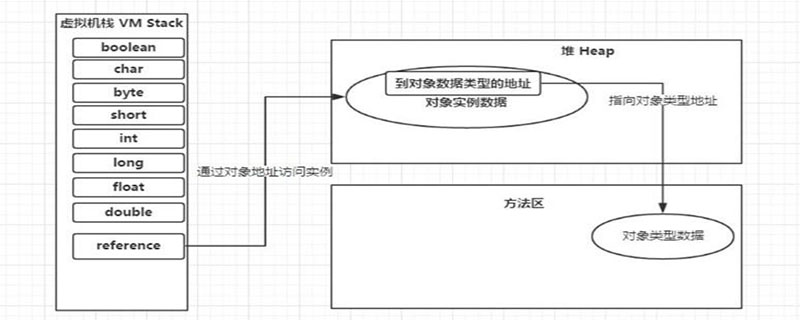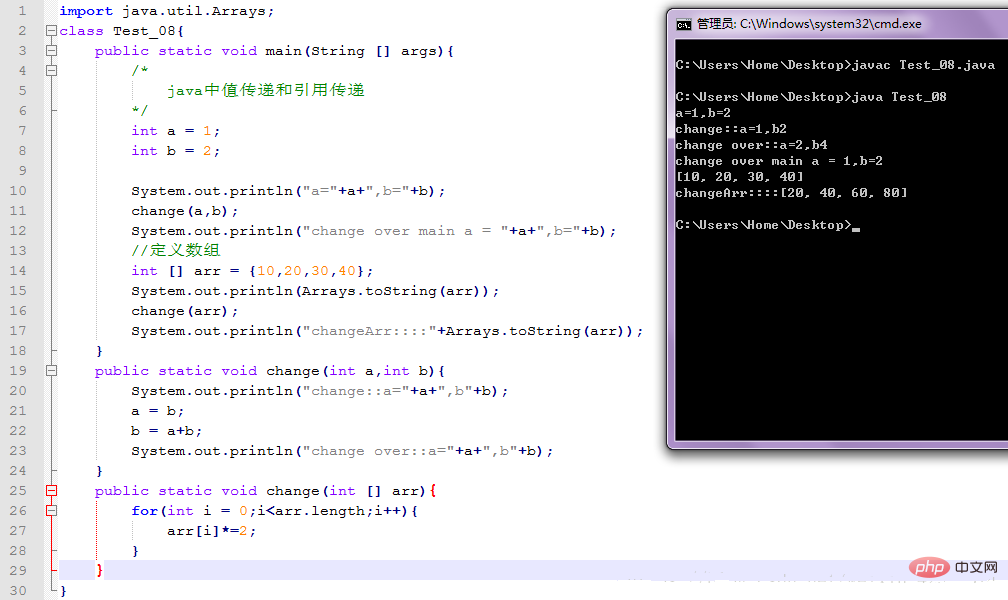
值传递是指基本数据类型在方法中的传递,引用传递是指引用数据类型在方法中的传递。
举例来说,如下图程序代码运行所示: (推荐学习:web前端视频教程)

注:int属于基本数据类型,因此在方法中进行传递和引用时,并不会改变该变量的数值
而arr属于数组,是引用数据类型,因此在方法引用时,实际传递的是该数组在堆内存中的物理内存地址,在方法中对该数组进行操作,则会影响到该数组内部的数值,会发生改变
原因:
在java中,基本数据类型作为参数传递的时候叫做值传递,传的是值本身,
值传递:值在该方法中改变属于局部变量改变
当出了该方法就没有作用了(方法中的传递的基本数据类型就属于局部变量)
在java中,方法的传参,引用数据类型,传的是物理内存地址值,当方法中对数组内部的数值进行改变时,并未改变该数组的物理内存地址,所以当返回到主方法中,数组还是指向原来的地址。
当传入arr数组在内存中的地址值后,堆内存中的连续地址发生改变,可以影响数组整体
特例:String /基本数据类型包装类,虽然都是引用数据类型,但是在发生传参的时候,它们传的是值
以上就是值传递和引用传递的区别的详细内容,更多请关注php中文网其它相关文章!

每个人都需要一台速度更快、更稳定的 PC。随着时间的推移,垃圾文件、旧注册表数据和不必要的后台进程会占用资源并降低性能。幸运的是,许多工具可以让 Windows 保持平稳运行。




Copyright 2014-2025 https://www.php.cn/ All Rights Reserved | php.cn | 湘ICP备2023035733号